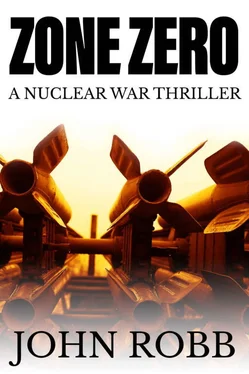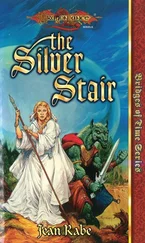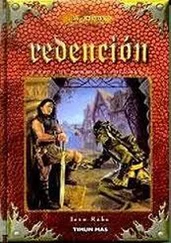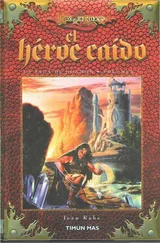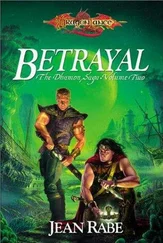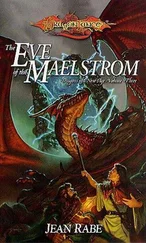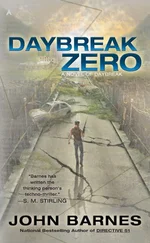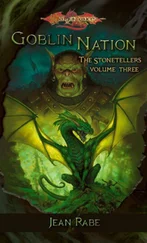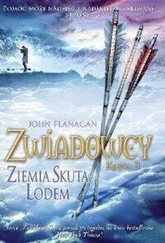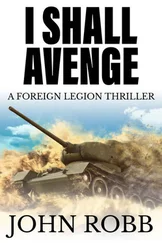Despite his youth, despite those conflicting lines of care on his face, there was a calm dignity about Andre D’Aran, the thief, as he walked slowly out of the bunk room.
* * *
Nine o’clock…
The moon was up, touching Fort Ney with lights of gold. A traveller, chancing on the place at that time, might have said: “Here is a tiny haven set in a sea of sand. It is a place of peace…”
But there was no peace within Fort Ney that night. The cauldron of hell was brewing. And it was being stirred by Legionnaire Rhuttal, the Latvian.
Rhuttal was an orator, just as the late Sergeant Vogel had been a reader. Rhuttal would speak with fluency and at great length on any conceivable subject.
He was never in any way deterred by the fact that his opinions were usually arrant nonsense and his authorities merely the products of his own vivid imagination.
Rhuttal loved words and ideas, so long as they were his own. And his comrades tolerated him with good humour. For in the normal way Rhuttal was harmless. In the normal way Rhuttal was merely one of the world’s great army of windbags.
But, given a suitable opportunity, such men can be intensely dangerous. Legionnaire Rhuttal had found such an opportunity.
He was surrounded by strained and frightened men. Men who were waiting… waiting to die. Men who felt the acid of fear burning at their vitals. Such men will listen gladly to anyone who speaks with assurance and offers hope.
Rhuttal was doing that.
He stood at the top end of the room, the moon shafts on his back, his face illuminated by the flickering oil lamps. The legionnaires sprawling on the cots were listening intently.
“How do we know that there’s no water in the foothills?” Rhuttal was asking. “We don’t know. There may be water there. So why must we stay in this place, waiting to be frizzled alive? Why, I ask you? Let us leave for the foothills now!”
Keith rose from his bunk. He said: “You talk like a fool. We’d never reach the foothills without water to drink on the way. It’s better to wait here…”
Rhuttal turned fanatical eyes on Keith. “Very well, you may be right…”
“I know I’m right, and so do you.”
“Then, I say, let one of us take half the remaining water and set out for the Keeba foothills alone. It is bet that one of us has a chance of life than that all of should die!”
There was a tentative rumble of agreement.
Keith was still standing as he said icily: “And who would be the lucky man? Are you thinking of yourself, Rhuttal?”
Rhuttal flushed and glared. Then he said with less force: “I am ready to take the risk. Surely none of you would stand in my way, since it is my plan?”
There was a wave of stark, humourless laughter. Then a babble of eager talk.
A black American, who had gambling in his blood said: “Ah figure we could draw for it.”
General agreement.
Keith turned on them, temper rising.
“Our orders are to stay here! We all heard what D’Aran said.”
“To hell with D’Aran,” Rhuttal said, eager now to grasp at this slender chance. “We’ll have a draw. There are two pints of water left. The man who wins will leave with half of it and a horse.”
“The horse won’t last long. Both of them are frantic with thirst now.”
The American came in again. He was a man with ideas, too.
“Ah guess the horses could use the water from the tank. That water sure would poison us right away, but them nags wouldn’t know no harm for a long time.”
Keith was forced to admit to himself that this was true. No one had thought of letting the animals have the contaminated tank water,
There was an excited chorus from the legionnaires.
“…How far are the foothills?”
“…Thirty miles.”
“…The horses could carry two men each!”
“…And be there in a few hours!”
“…Before there was time to be thirsty.”
Keith stood on the end of his cot. He bawled for silence as the tumult died away.
“You’re forgetting two things besides the lieutenant’s orders,” he said. “First, those foothills are only slopes of sand. There may be no water there for the men who arrive. Second, you’ve got to dig special protective ditches against the nuclear explosion. If you don’t, you die just the same. Four weak and thirsty men wouldn’t have the strength for that kind of work!”
For a few seconds they considered in silence.
Rhuttal broke it. He shouted: “Let’s take a chance. Anything’s better than all staying in this trap!”
Another rumble of agreement.
One legionnaire produced a dirty writing pad. He tore the paper into small identical squares, ready for the draw. On four of the squares he scrawled a cross. He was folding them as he said to Keith: “Are you in with us?”
Keith shook his head.
“I’m not running out. Every man who joins that draw is yellow! Yes, yellow! I think D’Aran would be glad to be rid of them!”
There was a sudden, ugly silence.
But Keith was not aware of it. He knew only that he, Keith Tragarth, the man who ran away, was calling a garrison of legionnaires yellow! Fantastic! Yet, truly, he was not afraid. And they were…
The black American shambled up to Keith. He was a big man, with the face and shoulders of a pugilist.
He said: “Ah don’t let no one call me yellow, bud. Mebbe you’d like to take then words right back.”
Keith stepped down from the cot, his fists bunching. The last thing he wanted at the moment was a brawl, but he wasn’t going to run away from one…
There it was again!
He wasn’t going to run away!
Yes, he, Keith Tragarth, was a changed man! He was a man!
A couple of legionnaires stepped between them. One of them said: “We ought to settle this another way. We can settle it in front of D’Aran… tell him to his face just what we’re doing. Perhaps he’ll agree with us.”
Keith nodded.
“We’ll see D’Aran,” he said.
His fountain pen was smashed.
D’Aran had found it crushed on the floor of his room. Perhaps either he or Gallast had stood on it during that first fight a week ago. But it was a pity. It had been a good pen. His family had saved to buy it for him when he won his scholarship to St. Maixent…
Now he would have to write his report on that typewriter. The machine with four missing keys.
D’Aran lifted it from the floor, put it on his desk. He regarded it without confidence.
Fortunately, three of the absent keys were numerals. They need not be used. The other was the letter ‘G’, which would result in tiresome delays over the name ‘Gallast’. The initial letter would have to be written in pencil afterwards. He must remember to leave space for it.
Before sitting down, D’Aran told himself: “You’re a fool to bother about writing a report. However well you protect it, it will probably be destroyed in the explosion. No one will ever read it.”
Then he muttered an answering argument: “But it may survive. I could roll it tightly and push it into the breech of a Lebel… In any case, it’s my duty to leave a report. If I don’t, there’s no possibility of the High Command ever knowing what has happened. And I owe it to my men. They will die tomorrow; some are dead already, but their names deserve to live in the story of France… And the world ought to know why the Arab populations were not warned…”
He inserted a sheet of thick, rough paper in the ancient machine. He tapped slowly, wearily. Heavily, too, for the ribbon was almost as old as the typewriter.
There were slight disturbances, but they did not distract him.
Daak was again on his bunk, each intake of his breath producing a penetrating rasp. His hands were folded symbolically over his heart. He stared vaguely at the ceiling, where a few sandflies were buzzing round the lamp. He was too afraid to express his fear.
Читать дальше
